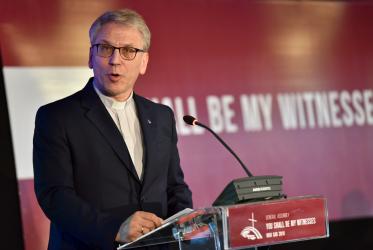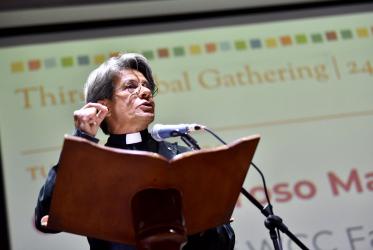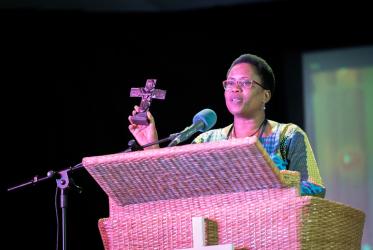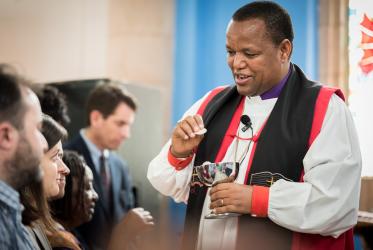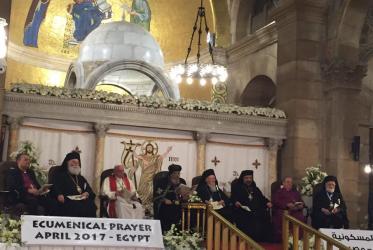Displaying 41 - 60 of 72
WCC joins call for prayer for peace on Korean Peninsula
23 April 2018
“Sending service” closes Arusha conference
13 March 2018
Arusha offers vibrant and colourful worship life
12 March 2018
#WCC70: A story of how we meet together
02 February 2018
Churches in France encourage ecological conversion
24 January 2018
Peacemaking “a great and compelling life task”
09 December 2017
Prayer resources for peace in Korean Peninsula available
06 December 2017
Historic ecumenical prayer in Egypt for peace and unity
30 April 2017
Seven weeks of Lent highlight water crisis in Africa
01 March 2017
